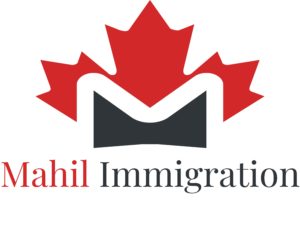WORK PERMIT
Canada ranks high in advanced technologies and is rapidly progressing, making this the best place for IT professionals and computer scientists. Moreover, Medical-related professionals, pharmaceuticals, businesses, and engineering are among the most popular industries in various cities across Canada.
With multiple jobs created each month, Canada has a very low unemployment rate compared to other developed countries. If a person has a valid working permit, their spouse or common-law partner may be eligible for an open work permit. Also, Children may be eligible to study for free at elementary and secondary schools. All these factors will be advantageous for you when applying for permanent residency in Canada.
There are two distinct types of work permits:
- Open Work Permit
- Employer Specific Work Permit
With few exceptions, most individuals seeking to enter Canada’s labour market will require a work permit. By applying for a Canadian Work Permit, you could join the more than 180,000 foreign workers who come to work in Canada every year.
How to Apply for a Canadian Work Permit
Typically, obtaining a Canadian work permit is a two-step process. In most cases, applicants will first require a job offer before they can apply for a Canadian work permit.
Step 1: In the vast majority of cases, the first step towards obtaining a Canadian work permit is to apply for a Labour Market Impact Assessment (LMIA) from Employment and Social Development Canada (ESDC). Usually, the Canadian employer must undertake domestic recruitment efforts and demonstrate that no Canadian permanent residents or citizens are qualified for the position at hand.
Step 2: After a positive LMIA has been issued, the applicant can apply for a Canadian work permit on that basis. Work permits are employer-specific unless a worker has an open work permit. If a worker wants to change employers, they must obtain a new Work Permit before performing another job in Canada. Canadian work permits are also limited in duration. We take care of the entire Canadian Work Permit process for both Canadian employers and temporary foreign workers.
Work Permit Duration
All Canadian work permits have an expiry date. The only way to work in Canada permanently or for an unspecified length of time is to acquire permanent resident status.
The Canadian government limits the length of Canadian work permits and the accumulated length of time that non-Canadians can work in Canada. The total number of months individuals may work in Canada—whether worked consecutively or with gaps between permits—is 48 or four years total.
Once the maximum of four years of work has been accumulated, foreign workers will have to leave Canada and remain outside of the country for at least 48 months (4 years) before being eligible to work in Canada again.
Canadian Work Permit Exemption
You may qualify for a Canadian work permit exemption in one of the following circumstances:
- Foreign representatives.
- Family members of foreign representatives
- Athletes and team members
- Performing artists
- News reporters, media crews
- Public speakers
- Convention organizers
- Business Visitors
- Clergy
- Judges, referees and similar officials
- Examiners and evaluators
- Expert witnesses or investigators
- Foreign government officers
- Health care students
- Civil aviation inspector
- Transportation Crew
- Aviation accident or incident inspector
- On-campus employment
- Military personnel
- Implied Status
At Mahil Immigration, we strive to provide our clients with the highest level of professionalism and immigration services. We will help you with your Work-Permit applications, Provincial Nominee Program, and Labour Market Impact Assessment related services.
For more information, please complete our contact form or call us at +1 (604) 585-2444

